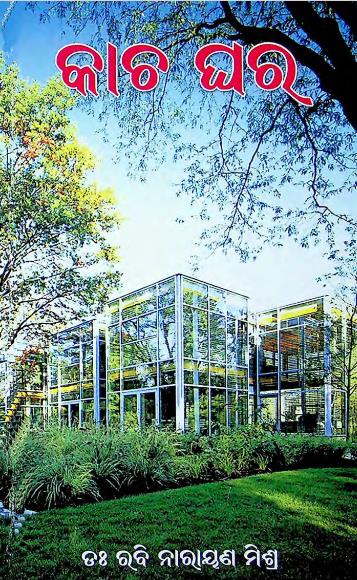In the rich tapestry of Odia literature, poetry continues to hold a special place, weaving together emotions, culture, and profound reflections on life. One notable contribution to this tradition is the poem book Kachaghar, authored by the esteemed poet Rabinarayan Misra and published in 2017. This compelling collection delves deep into the nuances of Odia culture, creating an evocative portrayal of both personal and societal landscapes.
Kachaghar translates to the unrefined house or the raw abode, a metaphor that symbolizes the fragile yet vibrant essence of life. Misra’s poetry captures the imperfections and beauty of existence, resonating with readers who appreciate the authenticity of everyday experiences. The poet uses the notion of a Kachaghar to reflect on the simplicity and complexity that co-exist within the human condition, bridging both traditional and contemporary Odia life.
One of the striking features of Misra’s poetry in “Kachaghar” is his mastery of imagery. He skillfully evokes visual and sensory experiences that transport readers to the heart of rural Odisha. Through vivid descriptions of landscapes, local traditions, and day-to-day activities, he paints a picture that is both nostalgic and relatable. The poems resonate with anyone who has experienced the small joys and struggles of life in a close-knit community.
Cultural references play a significant role in Misra’s work. “Kachaghar” encapsulates the essence of Odia festivals, rituals, and folklore, enriching the reader’s understanding of the region’s cultural tapestry. For instance, Misra draws upon traditional symbols such as the “Rath Yatra” (the chariot festival) and the various seasonal festivals that celebrate the agricultural cycle. Through these images, the poet not only honors the richness of Odia culture but also highlights the universality of human emotions tied to these experiences.
Moreover, Misra’s poems are imbued with a sense of social consciousness. He addresses themes such as identity, displacement, and the challenges faced by the modern Odia individual in the fast-evolving cultural landscape. The poet often juxtaposes the rural simplicity represented by the “Kachaghar” against the encroaching complexities of contemporary life, sparking a dialogue about what it means to belong and to remain grounded in a rapidly changing world.
The language of Kachaghar is another remarkable aspect of the book. Misra employs a style that is both lyrical and accessible, making it inviting for a diverse audience. His use of colloquial Odia, interspersed with rich metaphors and philosophical musings, creates a rhythm that captivates readers. The sound and cadence of his verses echo the oral traditions of Odia folklore, reminding us of the importance of spoken word in preserving culture.
In conclusion, Rabinarayan Misra’s Kachaghar stands as a significant work in the realm of Odia poetry, offering a profound exploration of the intricate relationship between culture, identity, and human experience. His ability to weave personal narratives with larger cultural themes reflects a deeper understanding of the Odia ethos, making this collection a valuable addition to contemporary Odia literature. As readers traverse the verses of Kachaghar, they are invited to embark on a journey that celebrates the beauty of imperfection and the enduring spirit of community.
Books Info
| Books name | Kachaghar/କାଚଘର |
| Author | Rabinarayan Misra |
| No Of pages | 81 |
| Publisher | Smt. Swarnaprabha Mishra |
| Publication | 2017 |
| Printed At | Redient Process |
| Distributor | NA |

